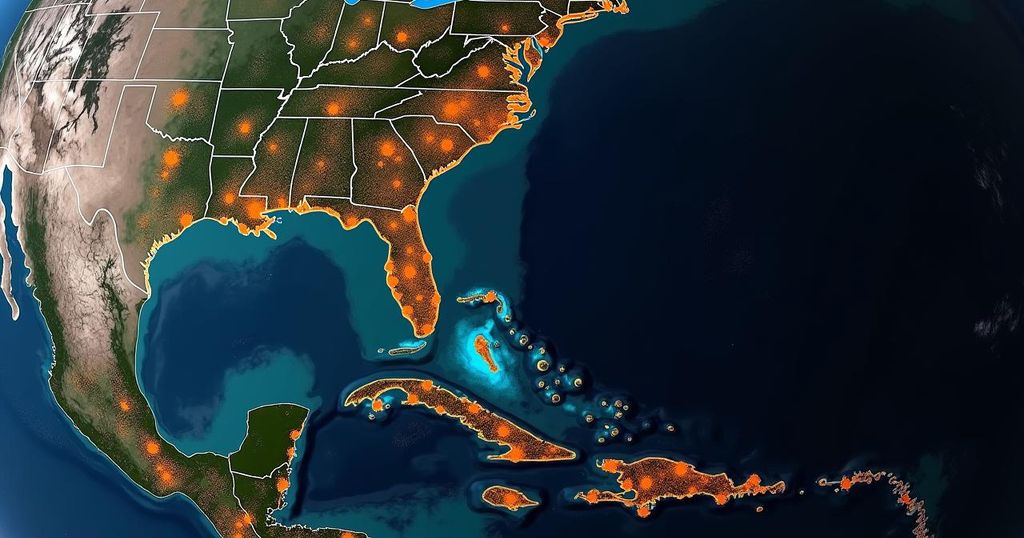Hurricane Helene Leaves Millions in the Dark and Faces Significant Challenges Ahead
Hurricane Helene has left over 1.2 million people in the Southeastern United States without power, with significant outages reported in South Carolina, Georgia, North Carolina, Virginia, and Florida. Survivors face additional challenges, including access to water and shelter, with reports of over 160 fatalities.
In the aftermath of Hurricane Helene, a significant number of residents in the Southeastern United States have been left without power, impacting communities stretching from Tallahassee, Florida to Damascus, Virginia. Despite the passage of several days since the storm’s initial landfall on September 28, many areas remain shrouded in darkness and continue to face substantial hardships. The National Weather Service has published an image captured by a NOAA satellite that vividly depicts the extensive power outages resulting from Helene. As of Wednesday morning, more than 1.2 million individuals were still experiencing outages across the region, with breakdowns as follows: approximately 491,105 outages in South Carolina; 363,340 in Georgia; 347,118 in North Carolina; 44,850 in Virginia; and 42,321 in Florida. While the loss of power is significant, other dire circumstances also affect those impacted by the hurricane, particularly in Appalachian towns and other severely affected areas. Survivors face numerous challenges, including access to clean water, secure shelter, navigable roadways, fuel, and food supplies. Reports indicate that over 160 lives have been lost due to Hurricane Helene and its aftermath, with numerous individuals still reported missing. For ongoing updates on Helene’s impacts and how to assist communities severely affected by the hurricane, readers are encouraged to consult local news sources or government websites.
Hurricane Helene was a destructive storm that made landfall in Florida, resulting in widespread power outages across the Southeastern United States. The impact of such natural disasters is often extensive, affecting not only electrical infrastructure but also essential services like clean water, shelter, and transportation. The aftermath of a storm can lead to significant loss of life, severe disruptions, and long-term recovery efforts. Tracking the effects of such disasters is crucial for understanding and responding to the needs of affected communities.
In summary, Hurricane Helene has resulted in significant and ongoing power outages across the Southeastern United States, affecting over 1.2 million residents. The need for assistance extends beyond the restoration of electrical service, encompassing access to clean water, shelter, and basic necessities. The human toll is underscored by the loss of lives and the ongoing search for missing persons, illustrating the comprehensive impact of this storm on those in its path.
Original Source: www.axios.com




Post Comment